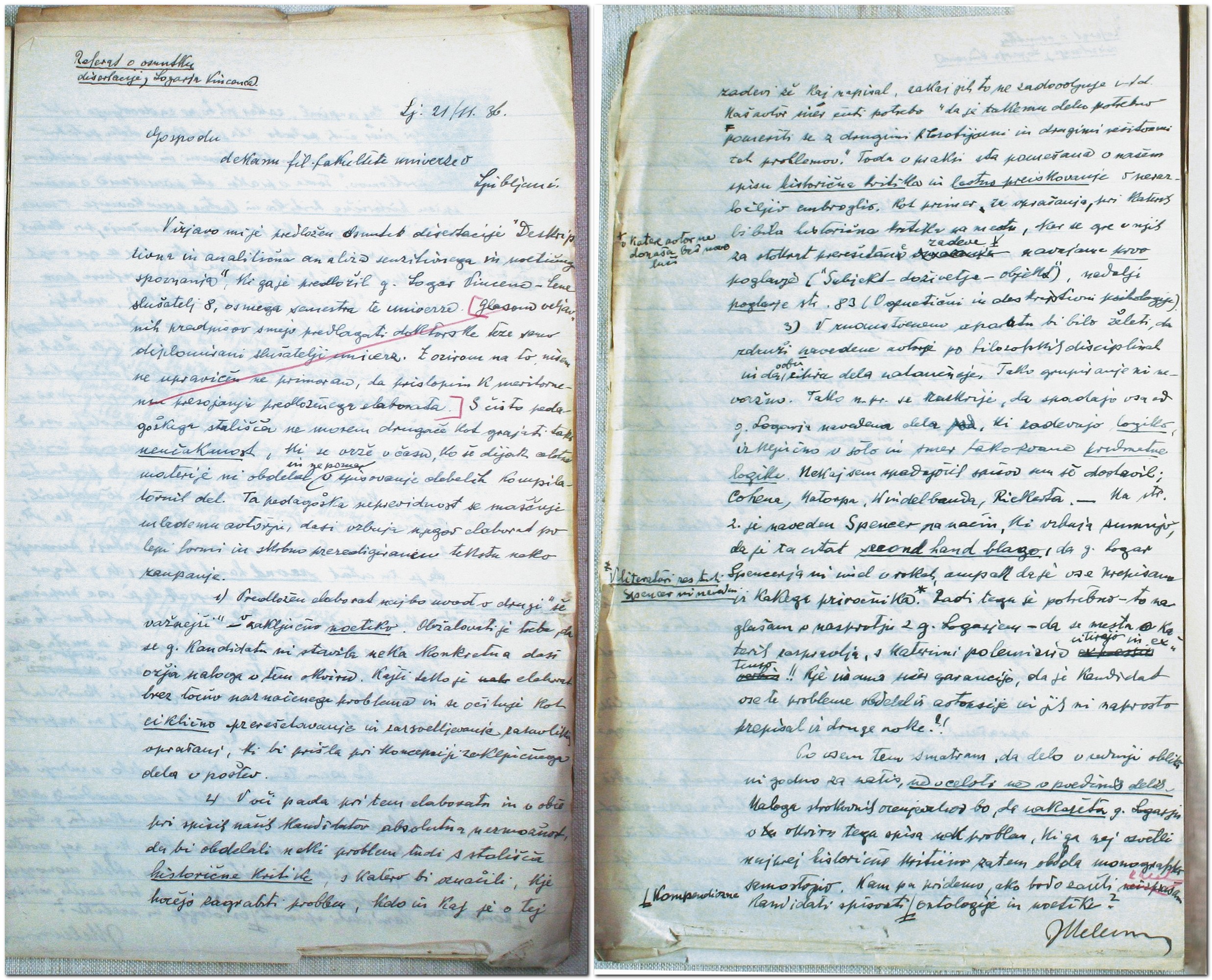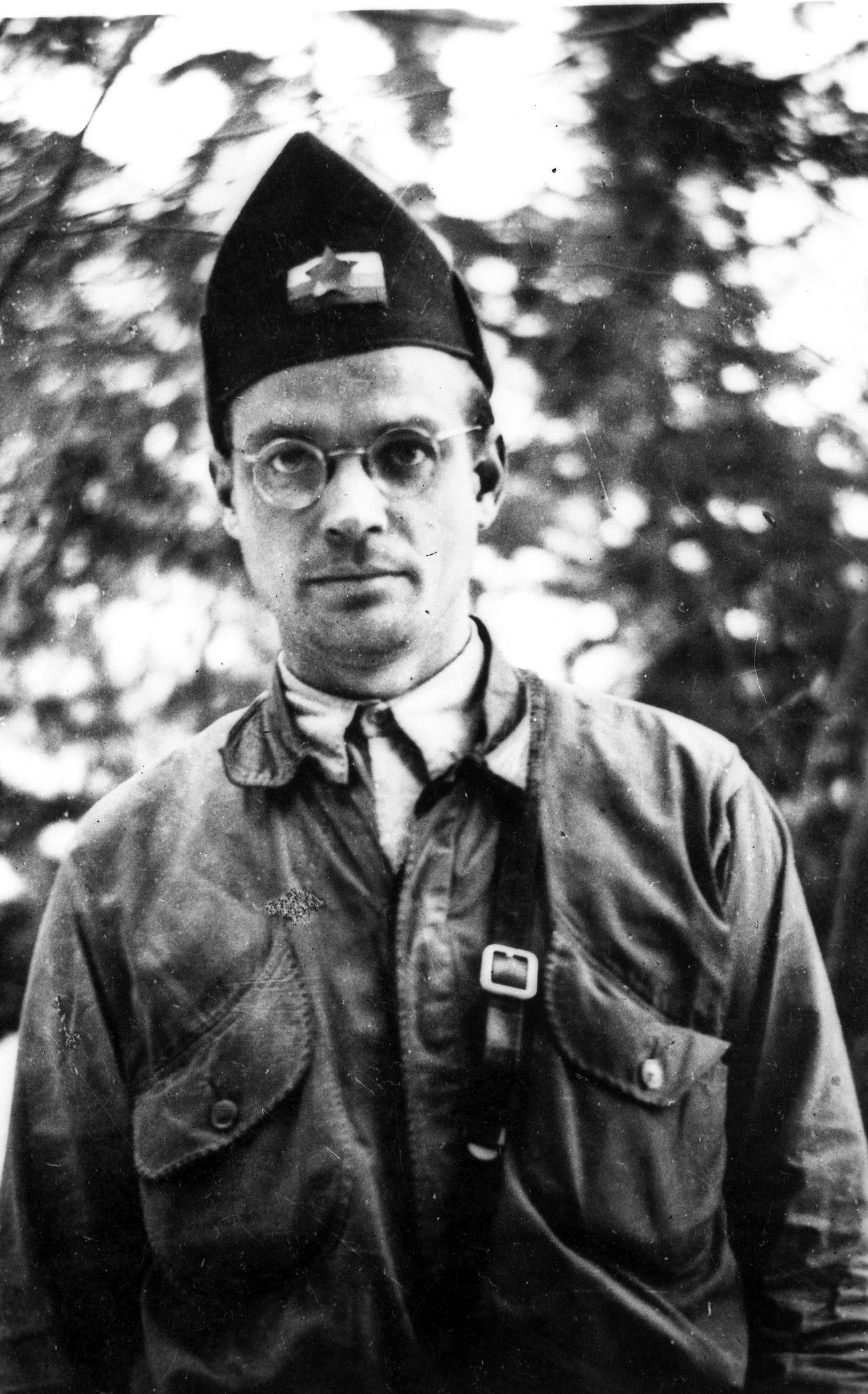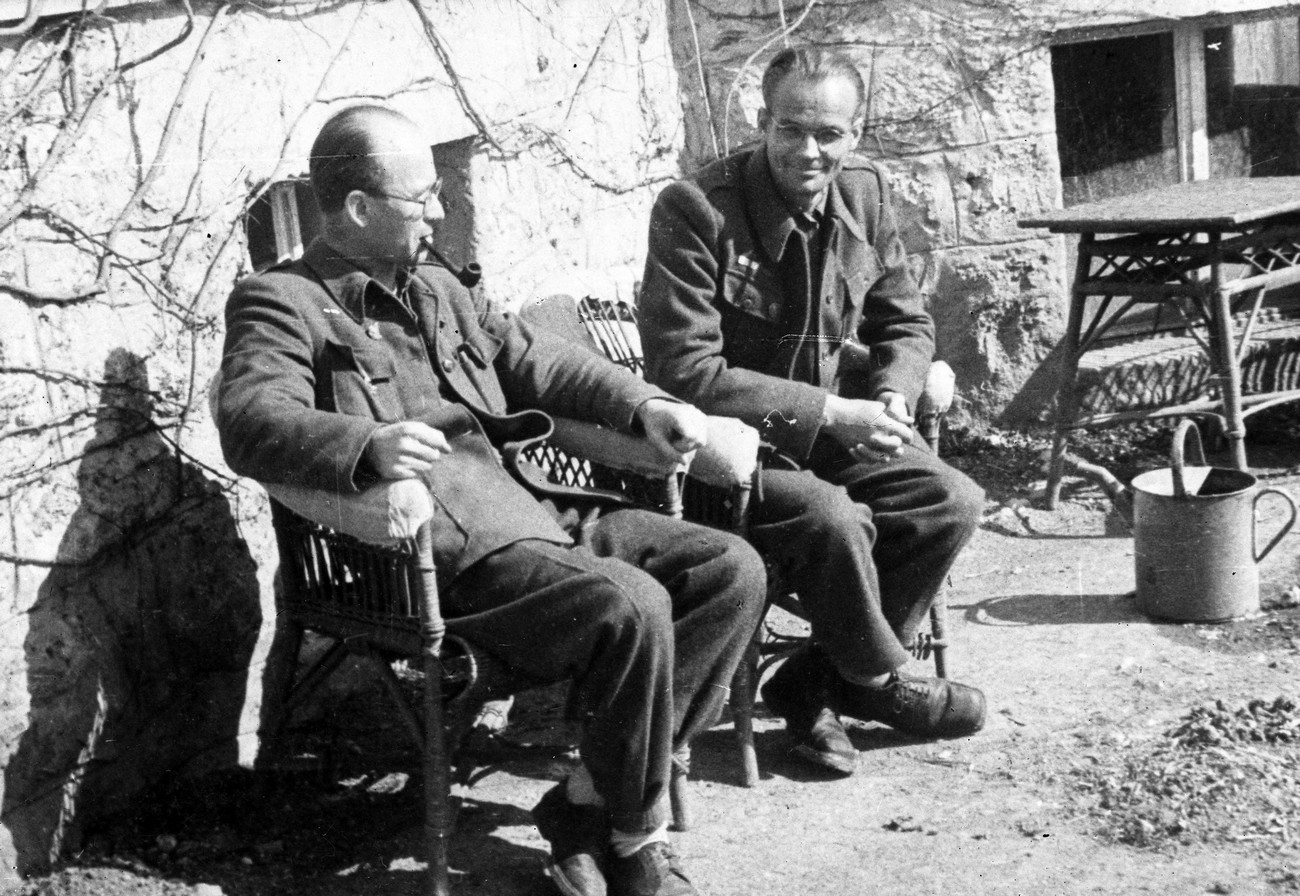
CENE LOGAR, philosopher (1937)
Descriptive and genetic analysis of sensory and noetic cognition. Mentor: France Veber. Promotion: June 26, 1937
He began working as a lecturer at the faculty in 1941 with a hiatus period after he joined the Partisans. He was imprisoned on Goli Otok for 8 years in 1949 for supporting Informbiro. After returning, he did not go back to the Faculty for health reasons. Even in his research work, he moved away from Veber's object theory and argued for the doctrine of dialectical materialism, which is clearly reflected in his published work.

Dean Jakob Kelemina's evaluation of the doctoral dissertation by Cene Logar. Source: Archive of the Faculty of Arts, doctorate folder of Cene Logar.

Cene Logar in the partisans. Source: Museum of Contemporary History Slovenia.

Cene Logar during the war. Source: Museum of Contemporary History Slovenia
Tine Logar, nephew:
My uncle, dr. Cene Logar was one of the most important Slovenian philosophers. He studied under prominent professors at the Sorbonne, in Vienna, and also under professor Veber. Because of his views that were contrary to the official views of the Party, he served a prison sentence on Goli otok. Four of his brothers, of a total of ten children (nine brothers and one sister), were convicted. The entire family was Partisan. Due to his immense uprightness, stubbornness, and uncompromising adherence to his principles, he spent seven years on Goli otok, which is one of the longest convictions. His work was consistent from the times of Resistance to the end. He pursued certain goals, of which he did not deviate. Even when he was completely isolated in Ljubljana, when he lost all his friends and contacts with his family, and when he was under the constant control of secret police. It took a toll on his health, while the highest tax was paid by his familyBožidar Debenjak, philosopher:
Cene Logar tried to habilitate himself as a private assistant professor around 1940, but it was not accepted at the time. That's why he studied in Prague and France. His work in phenomenology was quite modern at the time, but today it is, of course, outdated. His habilitation process ended after the Italian occupation when he surprisingly succeeded. He then joined the Partisans and got a political function after the war, from which he was later discharged. In 1947, he worked in the field he had studied. The title of his lectures was Dialectical Materialism. But then the period of Informbiro happened, the result of which was Goli otok. After his release, he was taken in by the Archives of the Republic of Slovenia. He worked there until the politics figured out they could rehabilitate him within the Faculty of Arts. From the habilitation of a science councilor, he obtained the habilitation of a full professor. He, however, sent a short letter, stating that the doctor would not allow him to lecture, so he never did.